Art History Courses
ARTH 950: Scaling Up 18th and 19th Century Studies
Instructor: Desplanque | Th 2:00 PM – 4:40 PM
For Scaling up 18th and 19th century studies, we will investigate data-driven art historical scholarship and digital projects that center on/include 18th and 19th century art history and visual culture. These investigations will include reading published peer-reviewed scholarship, exploring and using web-based digital projects, exploring the peer review standards of 18thC Connect and NINES (Digital Humanities frameworks specifically for eighteenth- and nineteenth-century studies), and Zoom sessions with scholars involved in the production, publication, and peer review of digital projects related to eighteenth- and nineteenth-century visual culture. As a class, we will produce a collectively defined final group project working with collections at the Ackland, North Carolina Museum of Art, Wilson Library special collections, and/or Rubenstein rare books collection at Duke.
ARTH 982: Seminar in American Art: Art and Environments
Instructor: Cao | W 2:30 PM – 5:10 PM
This course focuses on artistic engagements with the environment, primarily in North America from the eighteenth century to the present. While we will study a range of artists, practices, and movements from furniture making to Land Art, our main objective is methodological. Together we will define ecocritical art history and try to understand, expand, and challenge its parameters and goals. Along with art historical scholarship, we will read texts in environmental history, history of science, and materiality studies. The course is organized thematically by ecosystem, with topics such as forest, ocean, desert, and garden. Students will undertake independent research projects and develop pedagogy for teaching the environmental humanities.
ARTH 980: Seminar in Modern Art: Art and Ideas in Modern France
Instructor: Sherman | M 2:30 PM – 5:10 PM
This is a research seminar focusing on the relationship between art and ideas about politics, society, and culture in France from the late nineteenth century to the end of the Algerian War in 1962. The key questions we will be exploring include: how did artistic creation in the broadest sense respond and contribute to debates about modernity, various political doctrines, the colonized “other,” and art itself? In what ways did artistic avant-gardes interact with political avant-gardes, on the left as well as the right? How can we measure the effects – revivifying, stultifying, or otherwise – of intellectual debates on artistic production? Although necessarily selective, the range of topics and the assigned readings seek to present a range of approaches to the intersection of the histories of art, culture, and ideas in France in this period. For the purpose of final projects, the scope of the course includes works of art made in France (not necessarily by French artists) from 1874-1970.
Graduates
- To request an independent study, email the faculty member you wish to work with.
- If the faculty member agrees to work with you, please have them email the Student Services Specialist so you can be enrolled.
- Monitor your inbox for an enrollment confirmation email from the Student Services Specialist.
Current UNC Students
Students registered for courses in the same term may audit an Art History course without paying an additional fee. Unregistered students may audit a course for $20.
- To audit Art History courses, email the course instructor and request permission to audit.
- Once permission is obtained, please request an audit form.
- Monitor your inbox for an email confirming that your form is ready to be picked up. Your email confirmation will contain further instructions.
Community Members
Community members wishing to audit an Art History course may do so for a $20 fee.
- To audit Art History courses, email the course instructor and request permission to audit. Recitations (designated as REC on the course schedule) are designed to be taken in conjunction with their matching lecture course and are not available for audit unless otherwise noted by the lecture instructor.
- If the instructor agrees to a course audit, please request an audit form. Due to a high volume of requests and limited faculty availability, audit forms can sometimes take a while to prepare. Your patience is appreciated while the Student Services Specialist works to arrange your course audit.
- Once your form is ready, the Student Services Specialist will contact you with instructions on registration and payment.
Additional Information
Visit the Registrar’s website for information regarding general provisions, class participation, records, and fees.
